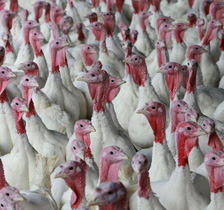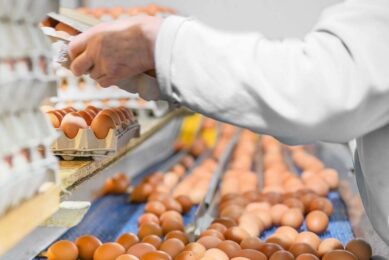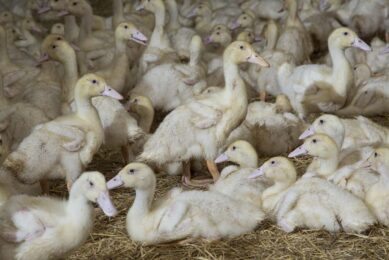Dutch report avian influenza on a turkey farm

Avian influenza has been confirmed at a commercial turkey farm near the town of Kelpen-Oler, in the South of the Netherlands. All 42,700 turkeys were culled.
The birds were culled on Sunday by the Netherlands Food and Consumer Product Safety Authority (NVWA). As of midnight Saturday, there was a transport ban for poultry, eggs, poultry manure and used bedding in a 3 km radius around the farm. Ruminants and other livestock, including pigs, from mixed farms are not allowed to be transported either.
The outbreak was discovered by the Dutch Animal Health Service that conducted regular research on avian influenza (AI). The findings were confirmed by the Dutch Central Veterinary Institute (CVI), where blood samples tested positive for avian influenza (AI), type H5 – probably a low pathogenic variety. The origin of the outbreak is not known yet.
On the farm located 10km from the Belgian border, the turkeys had shown a reduced feed intake for several days a couple of weeks ago, and also there had been a small increase in mortality, although this was lower than 0.1%. In other turkey farms in the area, similar clinical signs had been observed. It is not clear, however, that this is AI-related in any way at all.
Within the 3 km radius, there are approximately 25 other poultry farms, altogether having about 1 million head of poultry. These include 14 layer farms, three breeding farms, three broiler farms, three turkey farms and a multiplication unit.
All these farms are being scrutinised as well from this Monday – results are expected towards the end of March. Until that time, all poultry are obliged to stay indoors.
This measure only applies to commercial poultry producers. Whomever keeps poultry for a hobby, however, are advised to keep their birds indoors as well.
So far it is not known if there will be any consequences for the export of breeding eggs, broilers and poultry meat to third countries.
In February, AI was confirmed in 160 swans in the Drenthe province, in the north of the Netherlands. The swans have not been culled as it was a low pathogenic variety.
Related websites:
Netherlands Food and Consumer Product Safety Authority
Dutch Animal Health Service
Join 31,000+ subscribers
Subscribe to our newsletter to stay updated about all the need-to-know content in the poultry sector, three times a week. Beheer
Beheer








 WP Admin
WP Admin  Bewerk bericht
Bewerk bericht